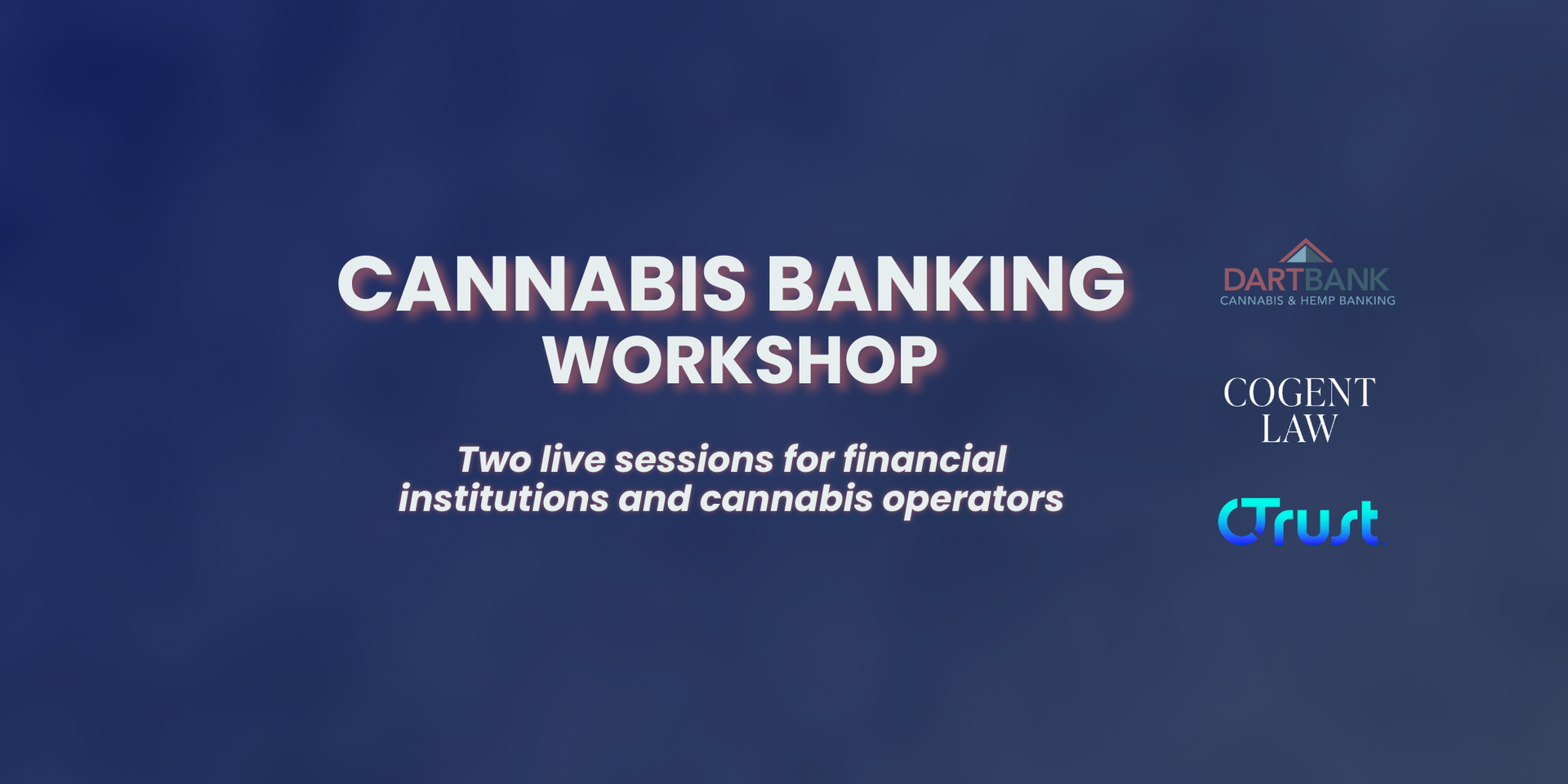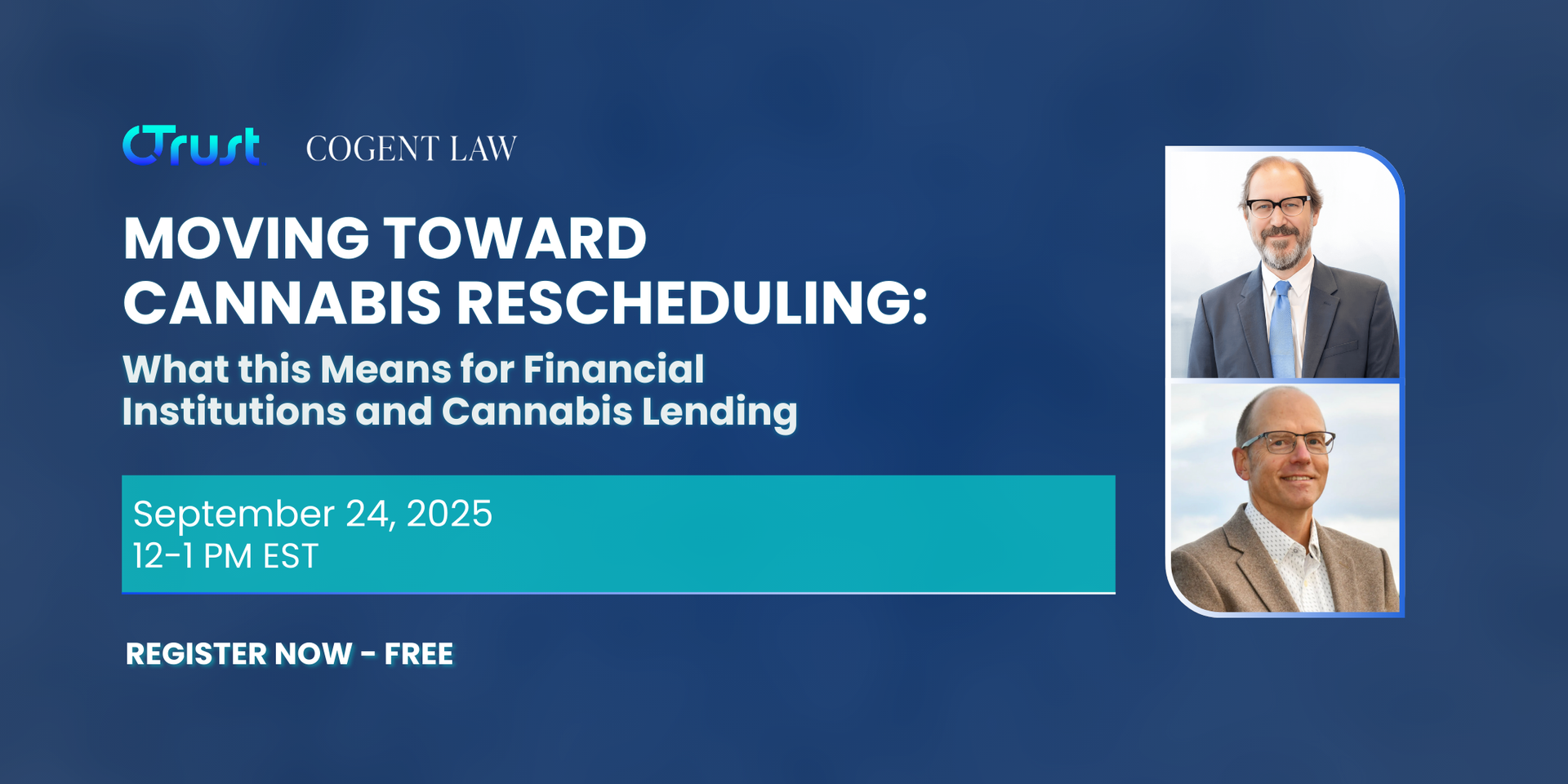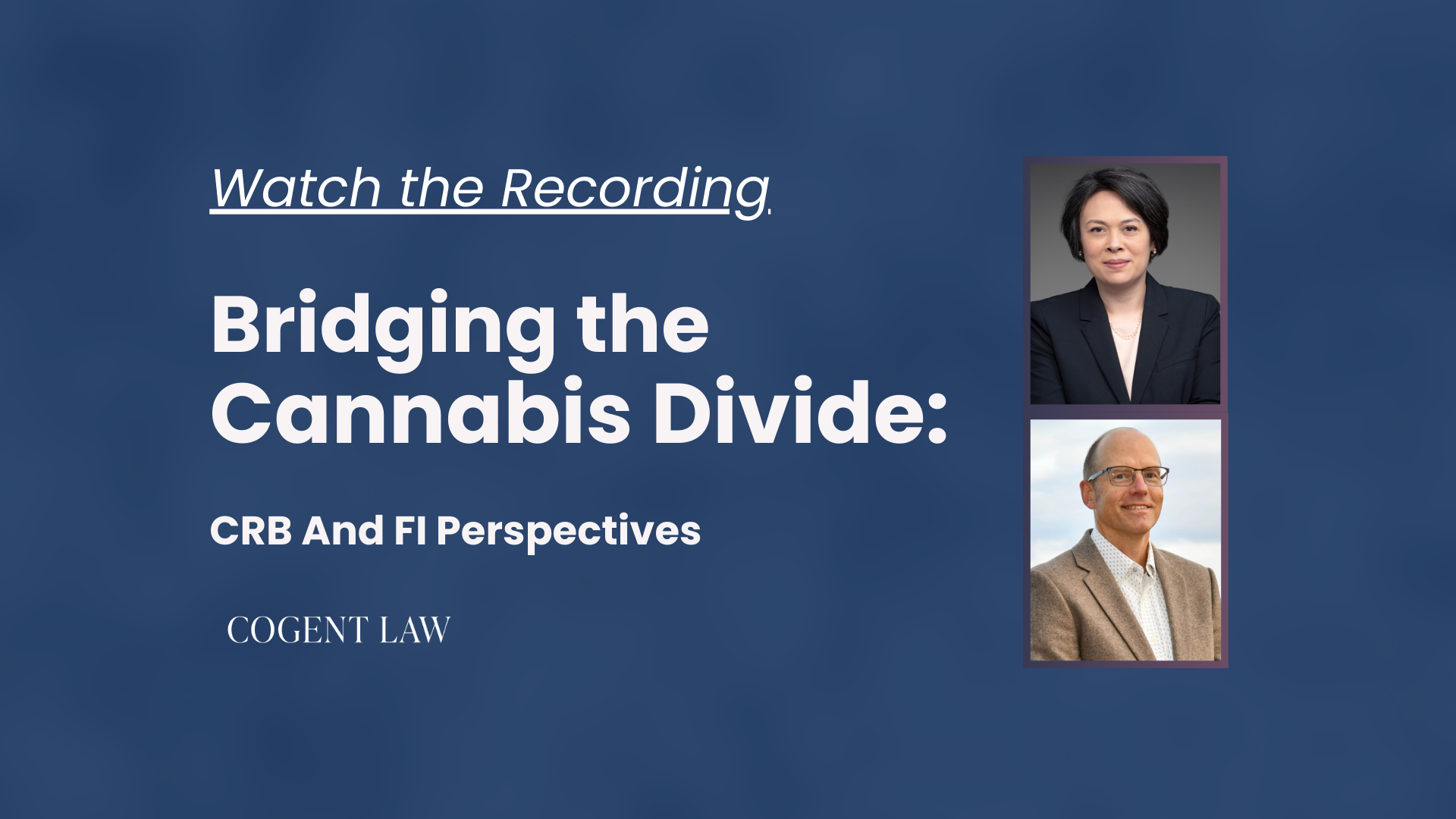
This timely webinar brings together cannabis industry and financial services experts for a candid, dual-perspective conversation on cannabis banking in 2025. Hear directly from a cannabis regulatory attorney and banking attorney about what’s changing, what’s working, and where opportunities lie. Attendees will gain insight on: Roadblocks holding back financial institutions from banking cannabis Frustrations CRBs face when accessing and maintaining financial services Key requirements CRBs must meet to work with financial institutions What CRBs can expect after opening an account National regulatory trends and pending legislation Why CRBs are increasingly attractive financial institution customers Topics Covered Compliance and risk considerations for both sides Best practices for building CRB–FI relationships CRB expectations vs. FI considerations Legal and regulatory developments on the horizon Meet the Speakers Adrienne Dean Partner, Cogent Law Group Adrienne Dean is a Partner at Cogent Law Group in its Cannabis Law Practice Group. Adrienne advises prospective and operating licensed cannabis businesses on state and local regulatory requirements as well as corporate law, securities and fundraising matters. A passionate advocate of social equity, Adrienne fights relentlessly for state legislation that promotes the interests of smaller, locally-owned businesses. Chris Van Dyck Partner, Cogent Law Group As a Partner at Cogent Law Group, Chris Van Dyck brings nearly a decade of hands-on experience in cannabis banking, both as a financial regulatory attorney and as a general counsel and BSA officer at a financial institution. With a deep understanding of compliance and regulatory expectations, including the 2014 FinCEN guidance, Chris has helped build and scale a successful cannabis banking program that became a major revenue driver. Today, he advises financial institutions on launching and managing compliant cannabis banking programs, mitigating risk, and driving growth in this high-opportunity sector.
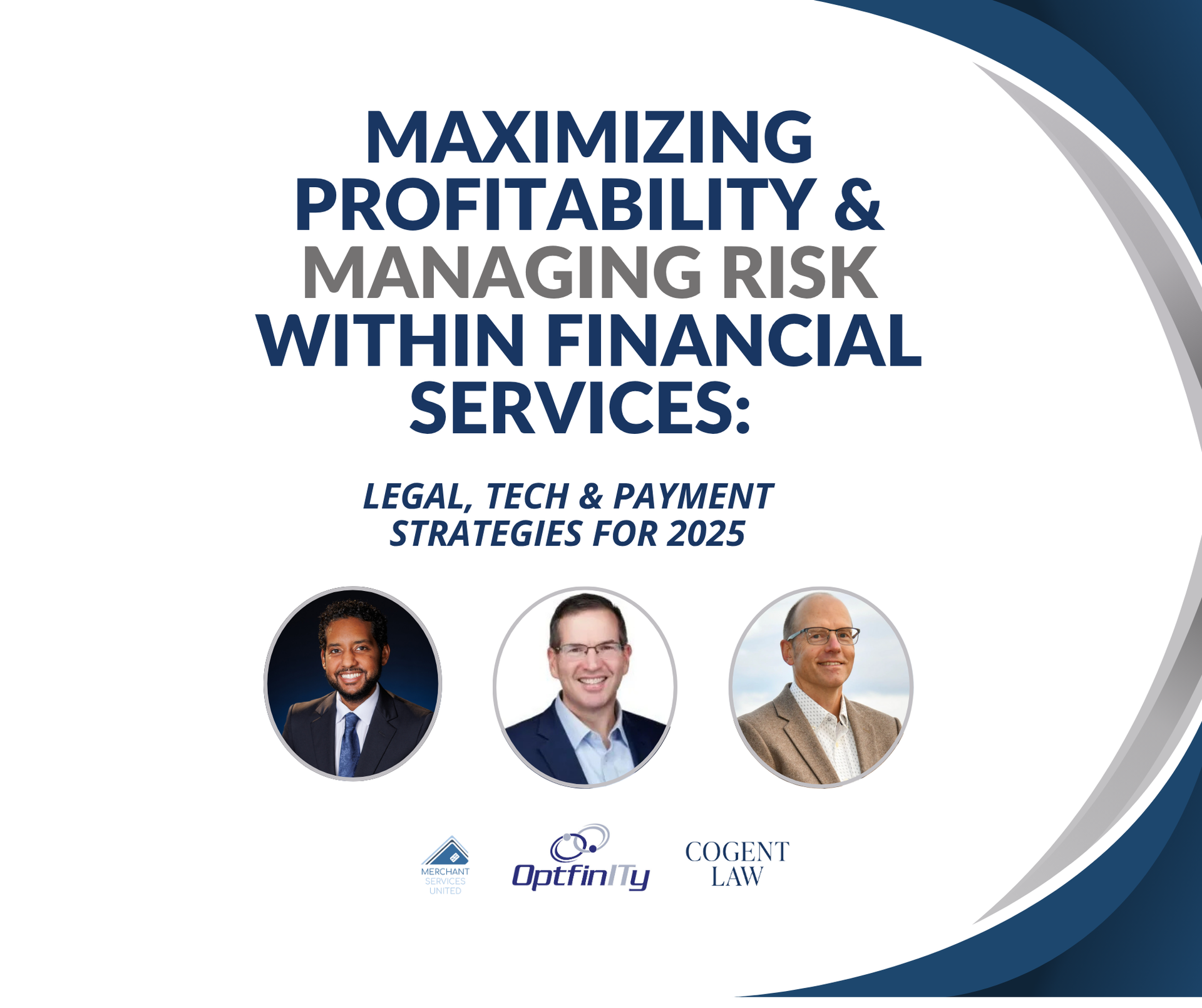
Explore how legal, IT, and payment systems can work together to drive profitability and reduce risk in today’s banking landscape. Event Description: A must-attend webinar for financial institutions, credit unions, and banks navigating the challenges of 2025. Learn how combining legal strategy, IT infrastructure, and modern payment systems can drive profitability while minimizing compliance and cyber risks. Join three industry experts for a tactical discussion on what’s working (and what’s not) when it comes to Risk and compliance management, IT modernization, revenue-generating tools for FIs and cannabis banking strategy. Topics Covered: How to identify and close profitability gaps Real risks to watch in today’s regulatory and tech environment Strategies for building compliant, revenue-positive CRB programs Tools and services that drive operational efficiency Mini case studies from financial institutions who’ve made the leap Who Should Watch? Credit Union & Community Bank Executives Compliance, Risk, and Legal Teams IT, Operations & Security Leaders Anyone exploring cannabis or high-risk banking strategies Meet the Speakers: Daniel Garedew Founder, Merchant Services United Daniel partners with banks, credit unions, and small businesses to reduce payment processing costs, optimize POS and ATM setups, and boost fee-based income. He’s known for his hands-on support and trusted relationships with financial institutions and community partners across the DMV region. Michael Drobnis CEO, OptfinITy Michael brings 30+ years of tech leadership, with deep expertise in cybersecurity, regulatory compliance (FFIEC, PCI), and managed IT services for financial institutions. Under his leadership, OptfinITy has been nationally recognized for helping FIs modernize infrastructure while staying secure. Chris Van Dyck Partner, Cogent Law Group Chris is a former financial regulator and longtime BSA Officer with nearly a decade of experience building one of the most successful cannabis banking programs in the U.S. He now advises credit unions and banks on launching compliant, revenue-generating programs tailored to their regulatory environments. Register now - FREE Bonus Is your Financial Institution offering, or considering offering, financial services to cannabis-related businesses (CRB’s)? Below is a checklist developed by Chris to assist your Financial Institution so that it appropriately manages the risks, and meets the regulatory expectations, of having a CRB program. Click Here to download the checklist.
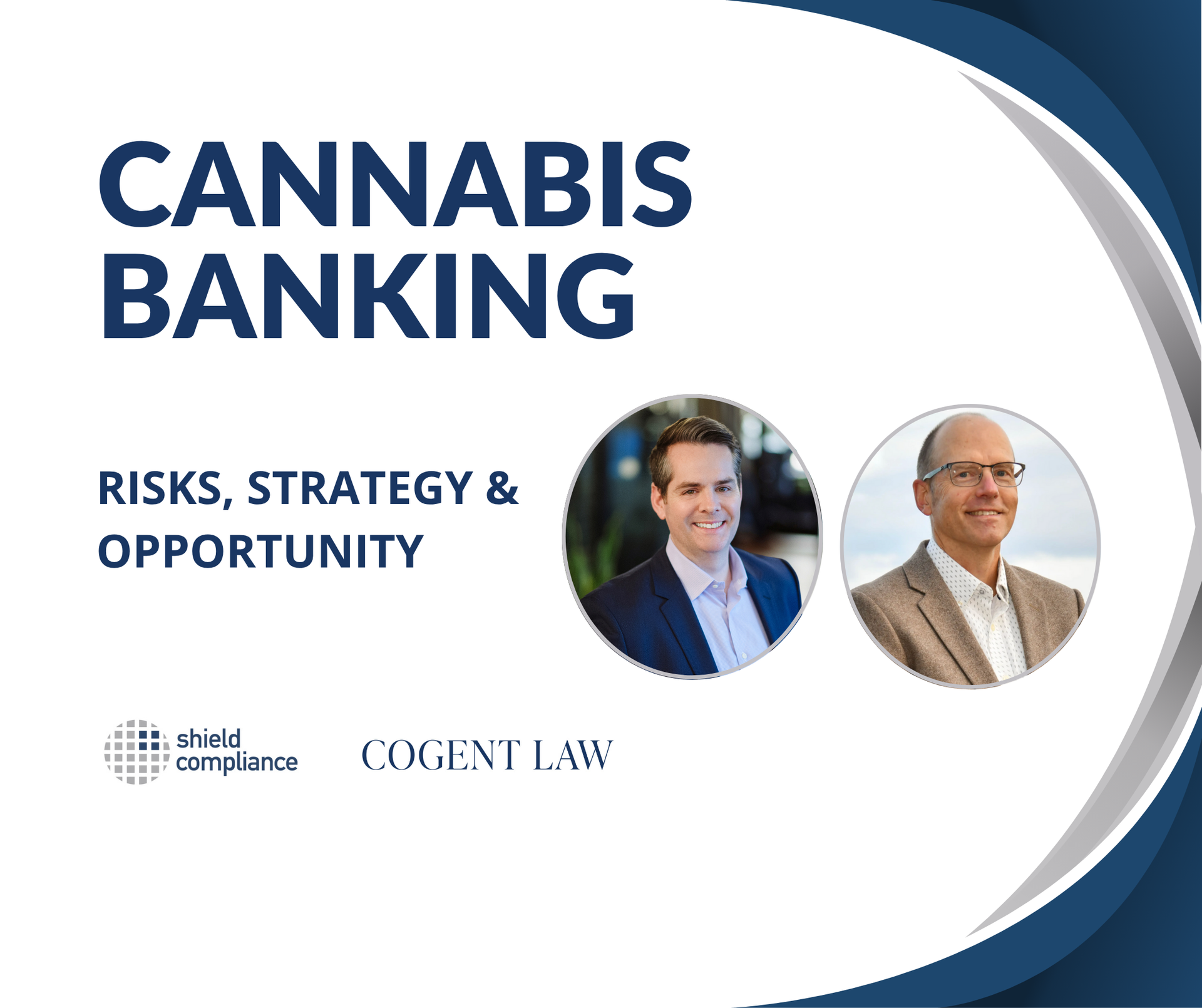
Event Description: Join Tony Repanich (Shield Compliance) and Chris Van Dyck ( Cogent Law ) for a fireside chat with two of the industry's leading voices in cannabis banking. This discussion explores how financial institutions are approaching compliance, lending, risk, and strategy in an evolving regulatory landscape and what your institution needs to know to stay ahead. Topics Covered: Recent federal developments and what they mean for banks and credit unions How to approach cannabis lending opportunities Strategies for managing risk and distinguishing your CRB program What makes a CRB a good client—and how to attract them Key service offerings to stay competitive Board engagement: why it matters and how to maintain it Who Should Watch? Bank & credit union executives Compliance, BSA/AML, and risk officers Legal and policy teams Anyone exploring or managing a CRB banking program Meet the Speakers: Tony Repanich President and CEO, Shield Compliance Tony Repanich is the President and Chief Executive Officer of Shield Compliance, where he leads the company’s strategic direction and serves as the principal architect of its compliance solutions. With over 30 years of experience in the financial services industry, including two decades as a senior executive at a Washington State-based community bank, Tony brings deep expertise in banking operations, regulatory compliance, and risk management. At Shield Compliance, he leverages this experience to help financial institutions navigate the complex regulatory landscape of serving high-risk industries, including the legal cannabis industry. His leadership drives the development of purpose-built solutions that enable banks to manage risk, streamline operations, and expand into high-growth markets. Chris Van Dyck Partner, Cogent Law Group Chris is a former financial regulator and longtime BSA Officer with nearly a decade of experience building one of the most successful cannabis banking programs in the U.S. He now advises credit unions and banks on launching compliant, revenue-generating programs tailored to their regulatory environments. Register Now – Free Bonus Is your Financial Institution offering, or considering offering, financial services to cannabis-related businesses (CRB’s)? Below is a checklist developed by Chris to assist your Financial Institution so that it appropriately manages the risks, and meets the regulatory expectations, of having a CRB program. Click Here to download the checklist.


